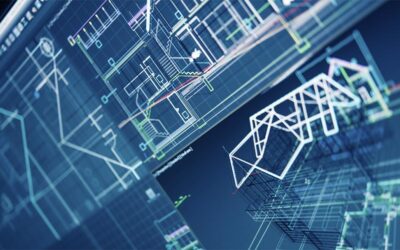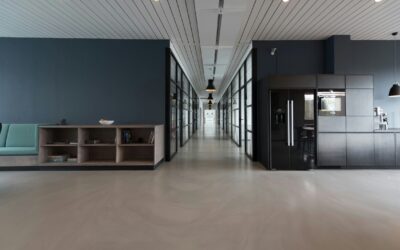The Rise of Smart Buildings: How Technology is Changing the Commercial Sector

Technology is advancing incredibly, and its influence can be seen in almost every aspect of our lives. One area where technology has significantly impacted is the construction and management of commercial buildings.
Smart buildings equipped with innovative technologies are revolutionizing the way businesses operate. Read on as we explore how these advancements transform the commercial sector and create more efficient and sustainable workplaces.
What Are Smart Buildings?
Smart buildings incorporate advanced technologies to optimize energy efficiency, enhance security, streamline operations, and improve comfort. They have interconnected devices, sensors, and systems that collect and analyze real-time data. These structures can also leverage the power of the Internet of Things (IoT), automate processes, and enable seamless communication between different systems, making them more intelligent and responsive.
Energy Efficiency and Sustainability
One of the primary benefits of this incredible technology is its focus on energy efficiency and sustainability. With the help of sensors and automated systems, these buildings can adjust lighting, heating, and cooling based on occupancy and environmental conditions.
Smart lighting systems, for example, can detect when a room is unoccupied and automatically turn off lights, reducing unnecessary energy consumption. Similarly, smart HVAC systems optimize temperature control and ventilation, resulting in significant energy savings and reduced carbon footprints.
Enhanced Occupant Experience
Occupants can have personalized control over their workspace environment, such as adjusting lighting and temperature settings through smartphone apps or voice commands.
This construction technology often offers features like automated access control, smart parking, and interactive digital signage that enhance the overall experience for employees, visitors, and tenants. They improve convenience, productivity, and satisfaction, creating a positive work environment.
Advanced Security Systems
Security is a crucial aspect of commercial buildings, and intelligent technologies have made significant security advancements. These buildings integrate video surveillance, access control, and alarm systems that can be centrally monitored and controlled.
Facial recognition and biometric authentication technologies ensure that only authorized personnel can access restricted areas. Moreover, real-time data analysis can detect anomalies and potential security threats, allowing quick responses and proactive measures.
Predictive Maintenance and Cost Savings
Smart buildings utilize data analytics and predictive maintenance technologies to identify potential equipment failures before they occur. By continuously monitoring systems, sensors can detect abnormal patterns or performance issues, allowing maintenance teams to take proactive actions.
This approach minimizes downtime, reduces repair costs, and prolongs the lifespan of building assets. Furthermore, data-driven insights help optimize resource usage, identify areas for cost savings, and improve overall operational efficiency.
The rise of smart buildings is transforming the commercial sector, introducing a new era of intelligent and sustainable workplaces. As more businesses realize the benefits of these buildings, we expect to see greater adoption of these technologies in the future.
Ready to transform your commercial space into an innovative and sustainable environment? At Curtis Partition, we specialize in leveraging cutting-edge technologies to create buildings that have improved quality and longevity. Contact us today to discuss how our expertise can revolutionize your commercial space. Let’s build a smarter tomorrow together!
Related Articles
The Importance of BIM Modeling in Construction
We have been merging tradition with innovation since we opened our doors in 1959 and in that time, Building Information Modeling (BIM) has emerged as one of the biggest game-changers we have come across and integrated into our work-flow. At Curtis Partition, we...
LEED-Certified Construction: Choosing the Right Partitions for Green Initiatives
The ‘green building’ concept has become the foundation of modern construction. Developers, architects, and environmentally conscious clients increasingly seek Leadership in Energy and Environmental Design (LEED) certification, a globally recognized standard for...
Fire-Rated Partitions: A Crucial Element in NYC Construction Safety Protocols
Architects and builders must ensure that their buildings can keep people safe from fires in a bustling city like New York. This is where fire-rated partitions come into play, serving as an essential element in improving safety. These specialized barriers protect lives...



